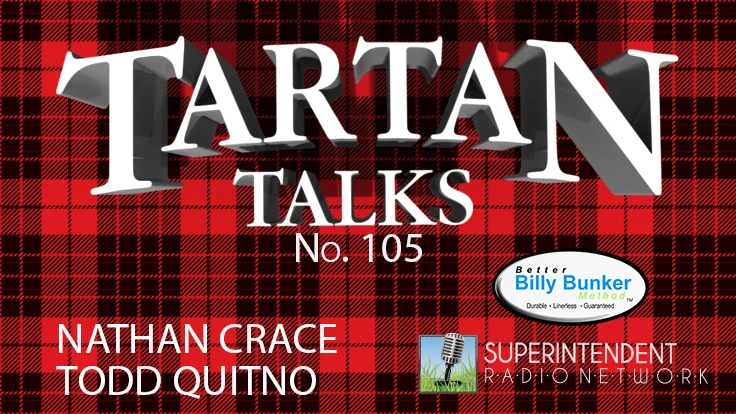Advertisement

Q. PBI-Gordon has a new product that’s really making a splash. Tell us about Arkon™ Herbicide Liquid.
A. As all of us in the professional turf management industry know, sedges and kyllingas can be a beast to control. We recognized the need for a truly innovative, truly effective new solution, and we went to work. The result is Arkon Herbicide Liquid – a liquid formulation of the PBI-Gordon proprietary active ingredient pyrimisulfan.
An HRAC (Herbicide Resistance Active Committee) Group 2 herbicide, pyrimisulfan is an acetolactate synthase (ALS) inhibitor offering selective, systemic weed control. It’s labeled for control of purple, yellow, and annual nutsedge, plus annual, cockscomb, green, and false green kyllingas. It also controls path rush and 14 common broadleaf weeds, including chickweed, dollarweed, and henbit.
Q. How well does Arkon perform?
A. Excellent! PBI-Gordon worked with our university and industry partners to hold hundreds of field efficacy trials. The results are game changing.
The University of Georgia conducted greenhouse research on Arkon performance on purple and yellow nutsedge. Arkon was applied once or twice to mature nutsedge plants, and both purple and yellow nutsedge tuber counts were significantly reduced by Arkon. IN fact, purple nutsedge tuber viability was reduced by up to 99 percent.
PBI-Gordon also partnered with Rutgers University to research false green kyllinga rhizome regrowth from herbicide-treated plants. In the study, Arkon was applied once or twice to false-green kyllinga plants grown in greenhouse conditions. Rhizomes from those treated plants were harvested and replanted, and the number of aboveground shoots regrowing from the treated rhizomes was counted. The study showed Arkon had significantly reduced the number of shoots regrowing from rhizomes previously treated with herbicides.
Q. So the trials were extensive?
A. Absolutely. PBI-Gordon put years of testing into pyrimisulfan and Arkon before we launched the product, both proprietary and independent. In addition to our university partners, we also partnered with more than 460 turf professionals from across the country, giving them access to Arkon before it hit the market. That demo program and the performance of Arkon blew-up the anticipation for the launch. It helped make Arkon the go-to post-emergent for nutsedge and kyllinga in 2024.
Q. What are some of the specs on Arkon? When can it be applied, what turf species is it labeled for, etc.?
A. Arkon can be applied year around – whenever weeds and turf are actively growing. It’s labeled for use in all the most common warm- and cool-season turfgrasses, including Kentucky bluegrass, fine and tall fescues, perennial ryegrass, creeping bentgrass, bermudagrass, St. Augustinegrass, and more. Check the label for the entire list. And it’s ideal for golf course greens, fairways, tees, roughs and aprons, as well as residential sites, parks, athletic fields, and more.

Explore the April 2024 Issue
Check out more from this issue and find your next story to read.
Latest from Golf Course Industry
- Beyond the Page 65: New faces on the back page
- From the publisher’s pen: New? No way!
- Indiana course upgrades range with synthetic ‘bunkers’
- Monterey Peninsula CC Shore Course renovation almost finished
- KemperSports and Touchstone Golf announce partnership
- PBI-Gordon Company hires marketing manager Jared Hoyle
- Mountain Sky Guest Ranch announces bunker enhancement project
- GCSAA names Joshua Tapp director of environmental programs





